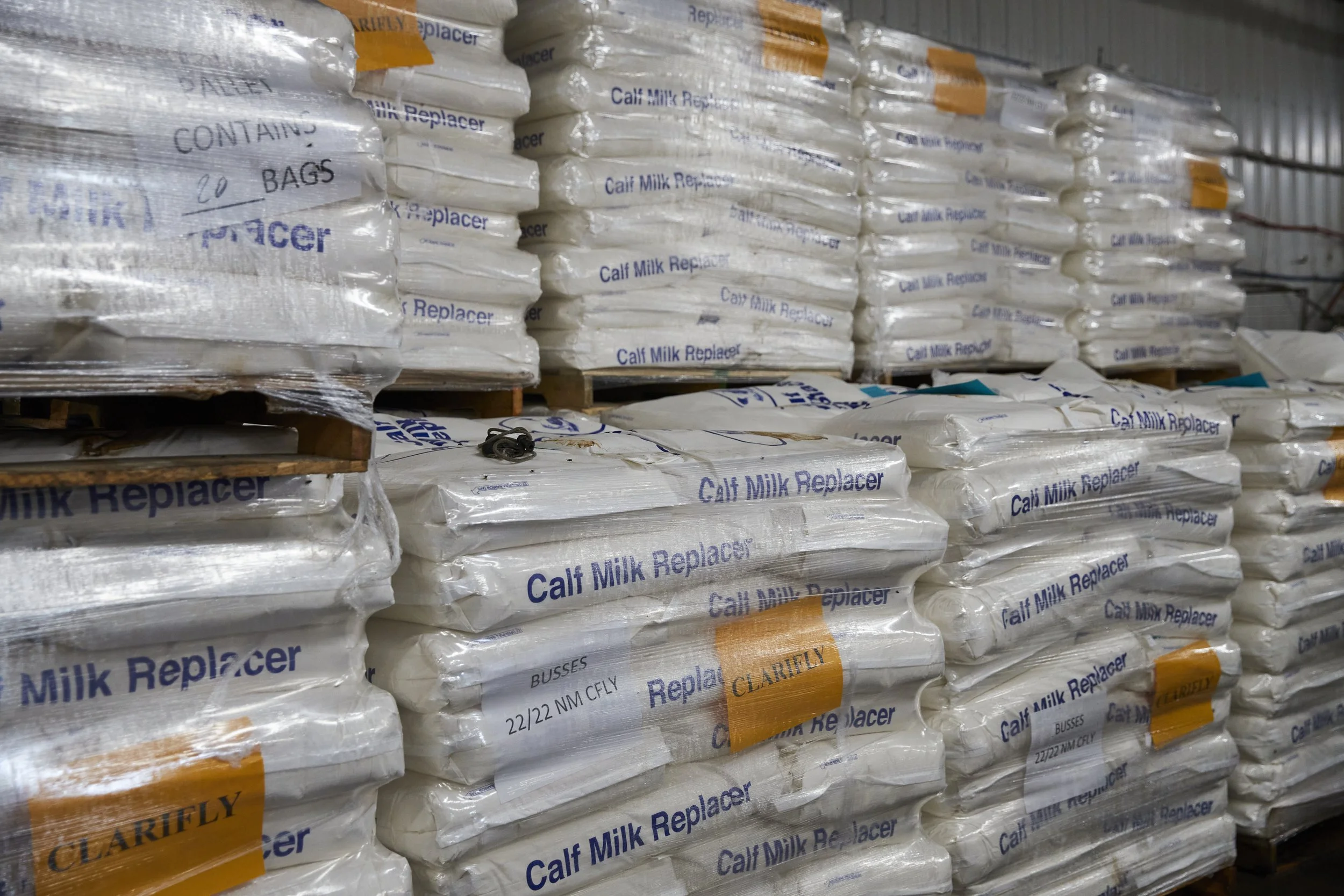Probiotics Promote Antibiotic-free Wellness
Adding antibiotics to calf milk replacer was a very common practice in the United States for several decades. In fact, there was a time when more than half of all milk replacer sold in the U.S. was medicated with antibiotics.
Delivering antibiotics as treatment or even at low “subtherapeutic” levels was thought to help animals ward off disease and promote growth. However, we later learned through research that it wasn’t all that successful in doing that. And in the process, it caused other problems.
For one thing, it created an environment to actually promote bacterial resistance. By hitting them with antibiotics, some of the bacteria “reinvented” themselves, survived, and became resistant to the antibiotic, which is a serious concern for both animals and people.
Plus, even low doses of antibiotics kill part of the “good” bacterial population in the calves’ digestive tract. As a result, we were directly contributing to the potential for delaying rumen development, and possibly causing scours in developing calves.
“We’ve been adding probiotics to Strauss Feeds milk replacer rations for more than 25 years, recognizing early their many benefits for calves.”
Today, it is no longer legal to feed antibiotics in milk replacer at subtherapeutic levels. And we’re learning more all the time about the critically important, live organisms that reside in the digestive system of every calf. In doing so, we’re rapidly embracing the value of the opposite of “anti”-biotics -- “pro”-biotics.
What is a probiotic?
Probiotics contain living, healthy bacteria. Their name is derived from the Latin prefix “pro” meaning “for,” and the Greek noun “bios,” meaning “life.” The term “probiotic” usually refers to beneficial microorganisms in the gut.
We’ve been adding probiotics to Strauss Feeds milk replacer rations for more than 25 years, recognizing early their many benefits for calves.
Their contribution to the “good” bacteria population in the calf’s microbiome helps balance against growth of the “bad,” disease-causing bacteria. They also help reduce inflammation and boost immune system development. And, for the same reason your doctor tells you to eat yogurt when you’re taking antibiotics, they help maintain and restore a calf’s gut health during antibiotic treatment.
Recent studies in scientific journals have reinforced these benefits of probiotic supplementation. Results included:
Improved weight gain in calves, especially in their first two weeks of life.
Better growth and feed efficiency. (Journal of Animal Science).
Improved livestock health, immunity, and productivity. (Journal Microbiology).
Not all probiotic products are created equally.
Because the bacteria in probiotics are alive, they need careful handling and storage, so they are still living when they actually reach the calf. A high-quality, robust product at the start also is critical.
At Strauss Feeds, we collaborate closely with our suppliers to be sure our probiotics contain healthy strains of bacteria that can withstand feed mixing temperatures up to 120-130°F in prepared milk replacer. We also monitor the quality of our probiotics to ensure their bacteria are stable when held in solution, so they remain viable and are evenly dispensed in batches of milk replacer.
Cold storage conditions don’t affect the survivability of bacteria in probiotics. But excessive heat (over 110°F-130°F while mixing depending on the probiotic species) and/or moisture during storage can damage or destroy them. So regular, best practices for milk replacer storage are important for products containing probiotics.
We offer options to include probiotics as a part of bagged milk replacer blends, or as an add-pack that can be blended at feeding time. Visit with your Strauss representative about the option that would work best for your calves.
If you have perfectly healthy calves in perfectly stable conditions, you probably don’t need probiotics. But that’s not true for most calf operations, as even factors out of your control, like dramatic weather swings, can challenge your calves’ health and productivity.
Adding a probiotic to your milk replacer ration costs just pennies per day, and provides an excellent, non-medicated, proactive insurance policy to help your calves achieve the healthiest possible launch into life.
Literature Cited:
Cangiano, L.R., T.T. Yohe, M.A. Steele, and D.L. Renaud. 2020. Invited Review: Strategic use of microbial-based probiotics and prebiotics in dairy calf rearing. Applied Animal Science 36: 630-651. https://www.sciencedirect.com/science/article/pii/S259028652030135X
Bowman, S.M., S.T. Quantz, T. Rehberger, K. Habib, K. Smith, W. Boomer, A.J. Tarpoff, B.J. Bradford, S.E. Gragg, and C.K. Jones. 2021 Effects of Lactobacillus and Bacillus Probiotics on Pre-ruminating Calf Growth Performance and Efficiency. Journal of Animal Science, Volume 99, Issue Supplement_1, 149–150, https://doi.org/10.1093/jas/skab054.255
https://academic.oup.com/jas/article-abstract/99/Supplement_1/149/6271810
Kober, A.K.M.H., M.S. RiazRaigka, H.M. Mebwish, J. Vellega, and H. Kitazawa. 2022. Review Immunomodulation Potential of Probiotics: A Novel Strategy for Improving Livestock Health, Immunity, and Productivity. Microorganisms 10:388. https://doi.org/10.3390/microorganisms10020388
https://www.mdpi.com/2076-2607/10/2/388/htm
Kober, A. K.M.H., Muhammad S. Riaz Rajoka, Hafiza M. Mehwish, Julio Villena, and Haruki Kitazawa. 2022. "Immunomodulation Potential of Probiotics: A Novel Strategy for Improving Livestock Health, Immunity, and Productivity" Microorganisms 10, no. 2: 388. https://doi.org/10.3390/microorganisms10020388
RECENT POSTS



We do more than sell milk replacer. We partner with our customers to deliver both high-quality products and services that add value to those products and maximize their influence on calf performance.